A Chat With Craig Atkinson (DO NOT RESIST)
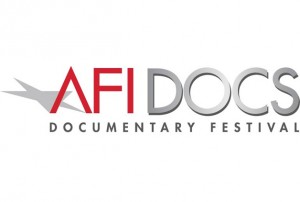 I met with director Craig Atkinson at the 2016 AFI DOCS on Sunday, June 26, 2016, to discuss his debut documentary, Do Not Resist (which I also reviewed here), which examines the rising tide of police militarization and how it contributes to increasingly aggressive tactics, using the 2014 shooting of Michael Brown in Ferguson, Missouri – and subsequent protests – as his starting point. The film won the Best Documentary Feature Award at this year’s Tribeca Film Festival, and also played at the Maryland Film Festival, among other places. Here is a condensed digest of that conversation, edited for clarity.
I met with director Craig Atkinson at the 2016 AFI DOCS on Sunday, June 26, 2016, to discuss his debut documentary, Do Not Resist (which I also reviewed here), which examines the rising tide of police militarization and how it contributes to increasingly aggressive tactics, using the 2014 shooting of Michael Brown in Ferguson, Missouri – and subsequent protests – as his starting point. The film won the Best Documentary Feature Award at this year’s Tribeca Film Festival, and also played at the Maryland Film Festival, among other places. Here is a condensed digest of that conversation, edited for clarity.
Hammer to Nail: Let’s start with your background as a filmmaker, first. In the press notes, I read that you’re a cinematographer, as well. Can you tell me what led you here, to the making of Do Not Resist?
Craig Atkinson: Sure. So after doing a grad program at Emerson College, I moved directly to New York City, and I had a list of directors that I had been watching during the course of my studies and that I really respected. As soon as I got to New York, I started cold calling these directors. Heidi Ewing and Rachel Grady, of Loki Films, are two of those directors, and I ended up interning with them for 4 days, and then they saw that I had some skills and hired me shortly thereafter. And then I spent about 4 years working with them. We did 12th & Delaware together; we did a section of Freakonomics together. On 12th & Delaware, I had the great benefit of being Enat Sidi’s assistant editor. The experience of editing with her really gave me a foundation of how to weave together vérité stories.
After working under Heidi and Rachel for many years, they asked me to produce Detropia, and so I started producing that film and about halfway through, our cinematographer, Tony Hardmon, had a film called Semper Fi that started to do really well, and he had to take time off, so there was a void there. I started stepping up and shooting a lot of the footage. I had the luxury of being from Detroit, so I was able to get in and out of places, and I started sending back footage that they really liked. That was kind of my first cinematography credit, and basically off the strength of Detropia, I was able to put together financing to do this film, which is my directorial debut, you could say. I’m just utilizing the shooting skills and the editing skills that I developed basically for the last 6 years, prior to starting this project. I worked with Heidi and Rachel for 4 or 5 years, on and off, and then it was time for me to step out and exercise my creative vision.
HtN: And I see, in the press notes, that you shot some of the film that they have here at AFI DOCS, Norman Lear: Just Another Version of You. What part of that did you shoot?
CA: There were some vérité moments that we shot, with Norman, that appear throughout the film. Heidi and Rachel usually rely on me for the vérité scenes. For the more scripted stuff, they have other people, but I’ve always been their vérité person.
HtN: And how much of Do Not Resist did you shoot, yourself?
CA: I did all of the cinematography.
HtN: So you’re a director/cinematographer.
CA: Yes.
HtN: (laughs) Exactly what I tell my students not to do.
CA: And I edited the film, too.
HtN: That’s great! You’re a one-man film crew! Indeed, in documentaries, sometimes it’s just easier.
CA: In this case, it was more a matter of necessity, because I was the only one who was going to be able to get access, and since I had the skills to shoot it, it was a great combination.
HtN: So, given that you were directing and shooting, yourself, how many other people did you have in your crew? A sound person?
CA: No. No sound person.
HtN: So it was just you?
CA: Just myself and Laura Hartrick, the producer. She was on every single one of the shoots.
HtN: Was she booming?
CA: She would either be interviewing or, in Ferguson, she was watching my back, since we were dodging tear gas and I needed a lookout. I wanted her to record sound with a shotgun microphone, but I was so nervous that that – while there’s tear gas going off at 2 o’clock in the morning – would look like a weapon. I was really nervous that these cops, who were pretty amped up, might make a bad decision, so I purposefully wasn’t able to have her do that.
HtN: Wow. So it was just the two of you.
CA: The entire film.
HtN: That’s amazing!
CA: And then we edited together. We weren’t going to: we were going to hire Enat Sidi, but she had a family emergency, so we basically lost our editor. So here we are, in the thick of it, and needing to edit ourselves, which we didn’t want to do – we wanted to have some distance from the footage – because, going through what was going on in Ferguson and raiding the houses, in became quite stressful, and the reality of having to sit with this footage for the next year and a half, going deeper and deeper into those thoughts, was a daunting prospect. It was out of necessity that we had to do it.
HtN: So take a step back for a second. Could you talk about your own personal connection to law enforcement, within your family?
CA: Sure. So my father was a police officer for 29 years, outside of Detroit, and he was a SWAT officer for 13 of those years. Growing up, he actually used to take me on SWAT training exercises, so when I was really young, I’d be a hostage, and when I got a little bit older, I would be an armed assailant, so it would be like me vs. the SWAT team in an abandoned factory in Detroit. It was a way for him to create greater obstacles for his team, and it was very fun, as a kid, to go and participate in something like that. So I was relatively familiar with SWAT and tactical teams, going into this film, but I think that just allowed me to empathize with the police officers, because my dad was a very upstanding officer, and I know his heart and I know he was always trying to do it right, and I know there are a lot of cops out there trying to do it right, as well.
HtN: How does your father feel about the militarization of the police?
CA: Well, I can tell you what he felt about the film. He was devastated by the film. You know, he dedicated his heart and soul to the profession and to what he thought he was doing, and they did a really good job, and what he’s observing on-screen, in the film, is his profession evolve into something that he could never personally identify with or ever want to be a part of. So it was very difficult for him to watch.
HtN: I notice, in the film, that you have a fair amount of cooperation from police officers in various places. Did you ever have any problems, in the production, with the police not cooperating? Obviously, if you’re in the middle of a protest, that’s one thing…I know there’s another point, however, where you’re asked not to film something, so…
CA: Yes. We had constant access issues. If you can imagine every time you want to shoot a scene, it’s a six-week access battle. Just imagine, from a documentary standpoint, how challenging that would be. Oftentimes, we would negotiate access with a police department that we thought was a fantastic SWAT team. We were constantly trying to show the full breadth of the SWAT experience, because there are obviously times when you need this equipment: look no further than the Orlando shooting; this is a fantastic use of SWAT. A not fantastic use of SWAT is raiding Gibson Guitars for using illegal wood, or the same SWAT teams in the Orlando area hitting barber shops for cutting hair without a license.
So we were continually trying to show the full breadth of the SWAT experience, and we thought that the Ohio State Patrol team was a very respectful, locked-down group of individuals. We did a training session with them and were literally on our way to the airport to go film with them and the Walter Scott incident happened and the media kicked up about it, and so they called us and said, don’t come. And so it was this type of thing all the time. I would say that the police tolerated our presence. They were never really on board with it. We fought for access anyway that we could. And it was very limited. For instance, the raid in South Carolina; that’s the only raid that we were allowed to do with that team.
HtN: Speaking of access, let’s talk about Dave Grossman. Throughout all that footage, you’re in the room, so he obviously signed off on you filming him. Did you have any issues getting access to him, and has he seen the film? What does he think of how he’s portrayed?
CA: Well, we were interested in hearing the messaging from the number-one law-enforcement-training professional in the country. Halfway through the production, it dawned on us that there seemed to be significant messaging that all the police officers were aware of, or conditioned to, and we were curious to know what type of training officers received. So we tried to negotiate access to a police academy, and thought of other ways to see what that looked like. We found out that Dave Grossman was giving a talk and we were invited, by the Ohio association that was hosting him, to film their conference. Obviously, we wanted to film with the number-one guy, so we called his people and they said that we could come.
So before we premiere the film, we always give anyone that’s in the film access to the film if they want to see it. We reached out to Dave and his people, and we haven’t heard back anything yet. So I’m waiting for him to get back to us so that we can actually send him a link. As far anyone’s portrayal in the film goes, we really tried to restrict ourselves to only putting things in the film that we could show. In this case, with Dave Grossman, it’s no different. We’re there and observing. I don’t feel like we’re portraying him in a certain way. We’re allowing him to…
HtN: You’re allowing him to be hoisted by his own petard. Although, how you edit him…
CA: Well, I’ll say this: what appears in the film, that people have responded to, in terms of some of his comments, is by no means the most shocking thing that we heard. I heard things that were a lot more shocking, so you could say that we portrayed him more favorably than we could have, to be honest with you. And there were a lot of things, that we filmed throughout the course of our project that, if people have issues with what we included, you should see what we didn’t include…
HtN: Sure. I feel like you are trying, in your film, overall, to be fair and balanced. You obviously have a point of view – there’s no person on this planet who doesn’t have a point of view – but I think it’s important to include other points of view, and you do. I think that works. However people read Dave Grossman is not necessarily your responsibility. How has your film been received, otherwise? You won the Best Documentary Award at Tribeca. What kind of feedback have you been getting from audiences?
CA: We have been getting absolutely phenomenal feedback. Obviously, it’s a very difficult subject to watch, but people have really appreciated getting a first-hand account of a lot of the headlines that they have been hearing since Ferguson. There’s so much confusion around what’s actually happening in law enforcement that people have just really valued being able to see it directly. People have said, thank you so much for not narrating it. Thank you so much for not putting your personal story into it. Thank you for letting these scenes unfold and giving us the opportunity to just bear witness to these things. And the other response has been that people have been utterly shocked. While we were making the film, each scene that we were filming was rather shocking to us, but we got desensitized to it in the editing process. So it’s been very interesting for us to engage with audiences and to see how shocked they are. I think it’s landing in the way that we wanted, which was to challenge people to really think about these things.
HtN: Well, you’ve certainly got some great material, and it’s very well shot. Congratulations on the film!
CA: Thank you!
– Christopher Llewellyn Reed (@ChrisReedFilm)







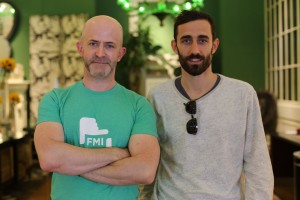
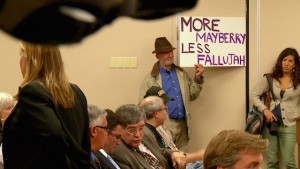

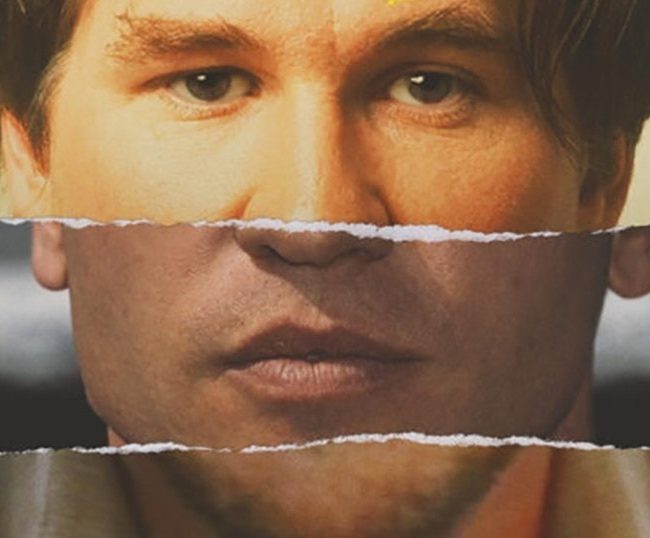
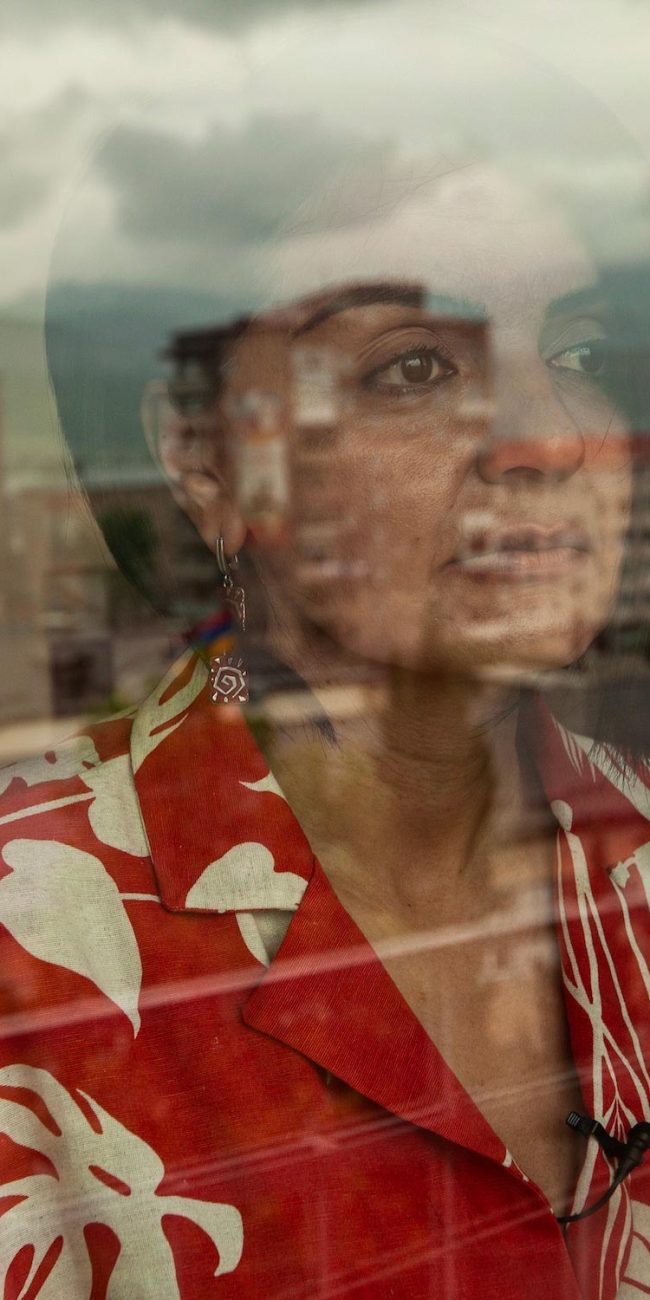


Pingback: Do Not ResistJuly 27th, 2016 - Cultivate Cinema Circle